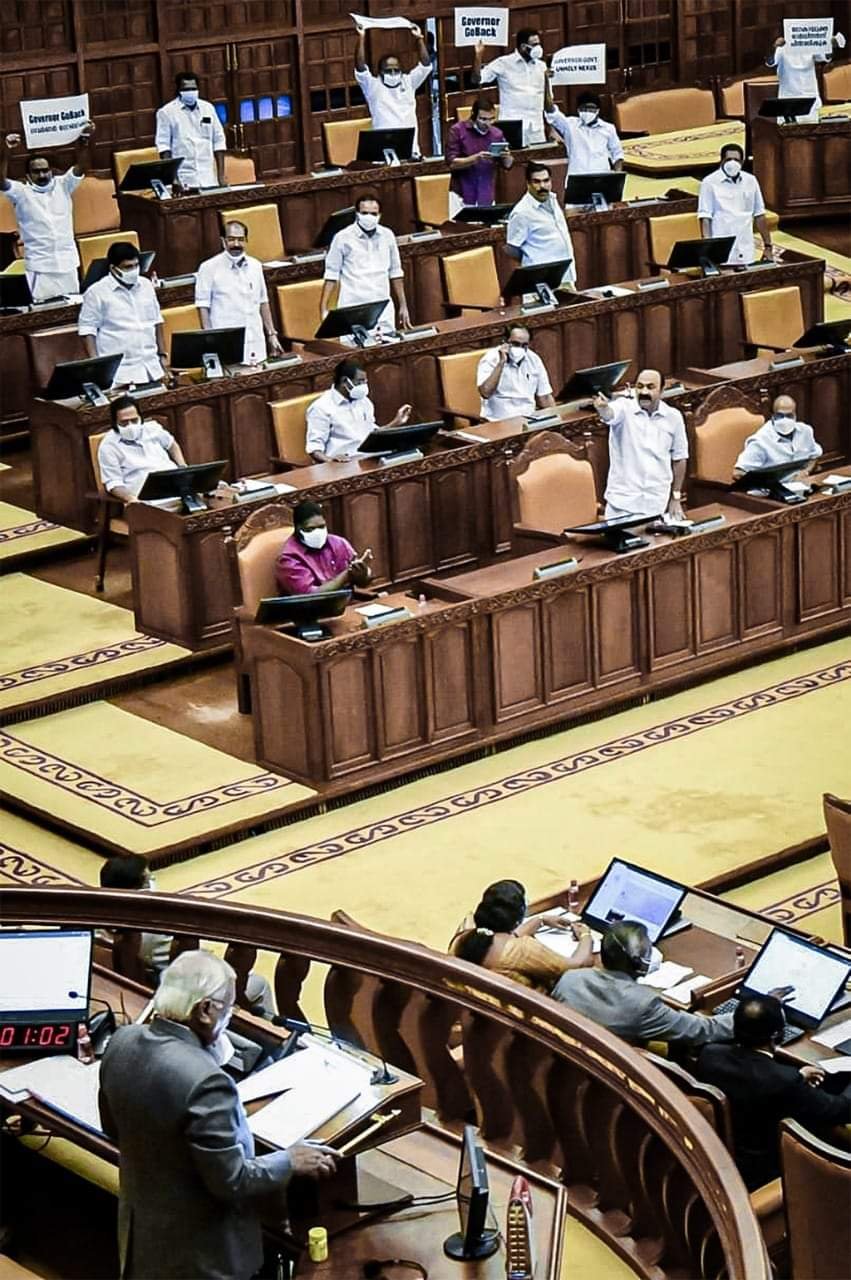How Congress and CPM together loot in Kerala? A Governor expose!


Recently, Kerala Governor Arif Mohammad criticized the insensible tradition of the Successive Kerala Government from 1994 onwards to give pension to the people in the personal staff after rendering two years of service.
Let me explain the issue –
In Kerala, every minister is eligible to have around 30 members as their personal staff. Generally, the party workers are inducted as the personal staff of the minister and the Kerala Government have been paying pensions for these personal staff after completing Two years of service. Interestingly, most of the personal staff members are replaced after two years by both the UDF Government and LDF government when they are in power because it is an easy way to help party workers have a permanent source of income by serving two years as a member in the minister’s personal staff.
This tradition of giving lifetime pension to personal staff of ministers using Taxpayers money is not found in any other states in India and this has created a culture of showering gifts to loyal party workers by both the UDF and LDF in the last decades.
Few days back, Kerala’s CPM state secretary Kodiyeri Balakrishnan had recently claimed that two employees will not be paid pension for occupying the same post. However, the numerous amendments to the Kerala Personal Staff Service Wage Rules of 1959 prove his claim wrong.
In reality, personal staff of Ministers and others are eligible for pension from the next month after they occupy the post for two years and one day! This amendment was introduced in 1994 when K Karunakaran was the chief minister. On the strength of this amendment, every successive state government has replaced most personal staff after two years and one day. As a result, two persons holding the same post would be eligible for government pension during a five-year term of a ministry and instead of the 30 members of the personal staff allowed for a minister, 40-50 persons receive the benefit.
Personal staff for ministers and the opposition leader was appointed for the first time in Kerala based on a government order issued in March 1959. Their number was fixed at 20 and their wages too decided according to the order. From the following month, the chief whip also was allowed to appoint personal staff.
Later, in 1994, pension was sanctioned with retrospective effect from 1984. Incidentally, while regular state government employees had to work for a minimum of 10 years to be eligible for pension, the period was three years for personal staff. A subsequent amendment reduced this period to two years and one day. Moreover, dearness allowance was allowed.
Yet another amendment in November 1997 allowed personal staff to receive increments and commuted leave when they are reappointed after an interval. A still another amendment in June 2012 allowed personal staff to commute 40 per cent of their basic pension to be on a par with regular employees. This amendment sanctioned family pension also.
Meanwhile, it is learnt that Governor Arif Mohamed Khan is likely to write to the state government expressing his objection to paying pension for personal staff. Earlier, the Governor had sought details of the pension from the Chief Secretary.
After receiving the letter, the state Cabinet can either accept or reject the Governor’s demand. On his own, the Governor does not have powers to stop the pension. However, even if the government rejects the Governor’s demand, it could be drawn into a legal battle as the pension could be questioned before a court. This is because the pension is being paid based on the rules cleared by the subject committee rather than a legislation passed by the state Assembly.
The Controller and Auditor General (CAG) has already recommended minimum qualifications for personal staff. Moreover, the Pay Revision Commission has suggested that their period of service to receive pension be raised to five years.
DISCLAIMER: The author is solely responsible for the views expressed in this article. The author carries the responsibility for citing and/or licensing of images utilized within the text.
